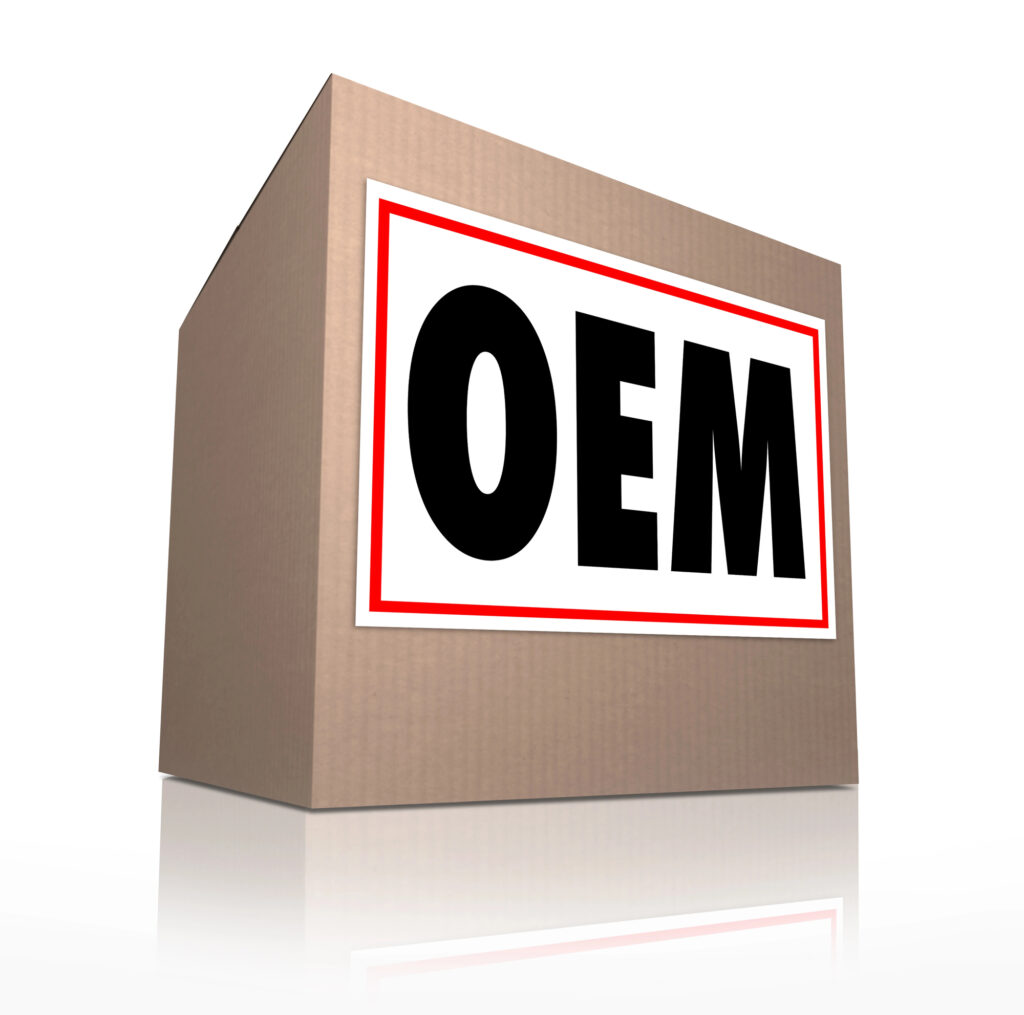 Original equipment manufacturer (OEM) is a term often heard in the technology and automotive industries, but its influence extends to small manufacturing businesses today. OEMs are more than mere suppliers — they can help your company excel in efficiency, quality and cost-effectiveness. Here are tips to help you understand what an OEM partner can do for your small business and how to find the right OEM partner for your needs.
Original equipment manufacturer (OEM) is a term often heard in the technology and automotive industries, but its influence extends to small manufacturing businesses today. OEMs are more than mere suppliers — they can help your company excel in efficiency, quality and cost-effectiveness. Here are tips to help you understand what an OEM partner can do for your small business and how to find the right OEM partner for your needs.
What’s an OEM?
OEM refers to a business that manufactures components used in the final products of another enterprise, referred to as a value-added reseller (VAR). Many VARs don’t have the capabilities to manufacture all items to create a product, so they outsource the production of some parts to OEMs.
One notable example of an OEM-VAR partnership is Nike and Flex — a global manufacturing and supply chain solutions provider. With Flex as the OEM, Nike can leverage the former’s expertise in supply chain management and sustainable manufacturing.
What’s the Importance of OEMs?
These brands are crucial to the success of companies that can’t manufacture all the parts of their end product. Here are some of the advantages of partnering with an OEM:
- Cost efficiency: Inventory represents significant upfront costs for small businesses, making up an average of 25%–35% of their budgets. Partnering with an OEM can help reduce expenses because they produce parts in large numbers, reducing the price and production time. It could save you from buying a factory and needing to recruit.
- Professional support: OEMs provide competitive perks, especially when you enter long-term contracts with them. They offer support and warranties, which positively affect the users of your final products.
- Flexible production: OEM collaborations can help you streamline workflows and labor-intensive processes.
- Risk mitigation: Partnering with a manufacturer can help prevent risks related to quality control, manufacturing and regulatory performance.
- Faster time-to-market: Outsourcing some manufacturing processes lets you speed up your end product’s time to market.
- Industry growth: OEM operations are constantly changing with the rise of more significant cybersecurity risks and labor acquisition challenges. Thus, encouraging people to work and stay in these facilities is becoming a global problem. In fact, around four million manufacturing jobs will need filling through 2030 due to the declining workforce. Partnering with an OEM ensures the continuity of the industry.
Tips for Partnering with the Right OEM
Instead of dealing with the complexities of manufacturing and production, partnering with a trusted OEM can help you save time, hassle, and costs. Consider these tips when finding the perfect partner.
1. Assess Track Record
An OEM’s track record shows its efficiency, quality, and reliability. Ask potential partners about case studies and businesses they work with to get a better sense of working with them.
2. Evaluate Volume and Pricing Capacity
Not all OEMs can offer the same volumes and prices. You’ll need a partner that best aligns with your corporate goals, so assess if you’ll only need a specific number of units per quarter or recurring monthly orders. To answer these questions, review your coming year’s product development roadmap and sales forecast.
3. Determine a Partner’s Commitment to Learning
The manufacturing industry is constantly evolving, so you’ll want to collaborate with a reputable enterprise dedicated to innovation and product development. Look to your industry’s demands and how a potential partner can provide solutions.
Some businesses are seeking ways to address extreme labor shortages. For example, RŌBEX collaborated with AI-powered vision software manufacturer Plus One Robotics to boost the eye-hand coordination of robots in warehouses and distribution centers.
4. Identify Industry Experience
Collaborating with an OEM who knows the intricacies of your field is beneficial. You can ask potential partners if they have experience in a related sector to gauge their suitability for your niche.
5. Define Access to Commercial Rights
An ideal OEM partner should be able to provide appropriate commercial use rights for outsourced parts. Access to these rights minimizes product launch delays and mitigates possible legal issues.
Collaborate With an OEM
The right OEM partner should help you achieve goals and be willing to work with you to tackle challenges. With solid collaboration, you can save yourself from the cost and hassle of doing everything independently.


